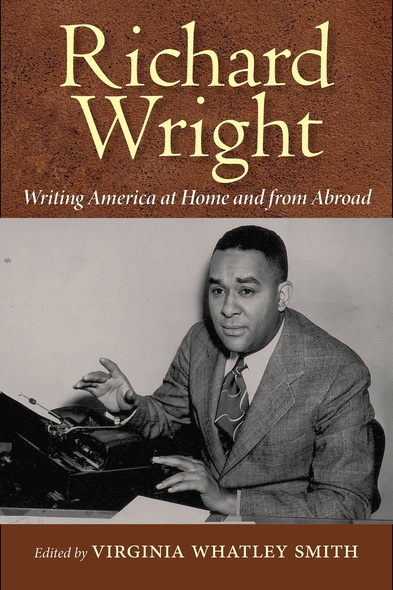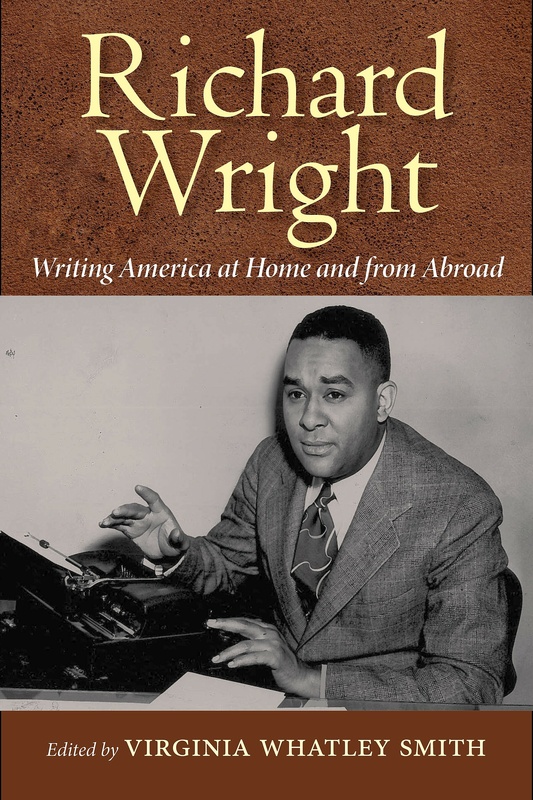
Richard Wright Writing America at Home and from Abroad
Contributions by Robert J. Butler, Ginevra Geraci, Yoshinobu Hakutani, Floyd W. Hayes III, Joseph Keith, Toru Kiuchi, John Lowe, Sachi Nakachi, Virginia Whatley Smith, and John Zheng
Critics in this volume reassess the prescient nature of Richard Wright’s mind as well as his life and body of writings, especially those directly concerned with America and its racial dynamics. This edited collection offers new readings and understandings of the particular America that became Wright’s focus at the beginning of his career and was still prominent in his mind at the end.
Virginia Whatley Smith’s edited collection examines Wright’s fixation with America at home and from abroad: his oppression by, rejection of, conflict with, revolts against, and flight from America. Other people have written on Wright’s revolutionary heroes, his difficulties with the FBI, and his works as a postcolonial provocateur; but none have focused singly on his treatment of America. Wherever Wright traveled, he always positioned himself as an African American as he compared his experiences to those at hand.
However, as his domestic settlements changed to international residences, Wright’s craftsmanship changed as well. To convey his cultural message, Wright created characters, themes, and plots that would expose arbitrary and whimsical American policies, oppressive rules which would invariably ensnare Wright’s protagonists and sink them more deeply into the quagmire of racial subjugation as they grasped for a fleeting moment of freedom.
Smith’s collection brings to the fore new ways of looking at Wright, particularly his post-Native Son international writings. Indeed, no critical interrogations have considered the full significance of Wright’s masterful crime fictions. In addition, the author’s haiku poetry complements the fictional pieces addressed here, reflecting Wright’s attitude toward America as he, near the end of his life, searched for nirvana—his antidote to American racism.
Diverse in outlook and carefully crafted, this collection is a worthy resource.
The works of Richard Wright, one of the most important American writers and thinkers of the twentieth century, continue to raise pointed questions about the exceptional history of our nation and to illuminate the difficulty of finding answers about which we might have consensus. Richard Wright Writing America at Home and from Abroad comprises penetrating, scholarly essays on his fiction and poetry. Virginia Whatley Smith’s editorial choice of arranging them to address the pre-exile (1930-1947) and expatriate (1947-1960) years of Wright’s career was wise, because significant aspects of continuity and change in Wright’s queries about what it means to be an American are appropriately framed. Using a heterogeneous array of theory and methods, the contributors advance scholarship by exploring what Smith aptly calls ‘the prescient nature of Wright’s mind.' In this sense, the book is a valuable guide for new directions in the study of Wright’s tentative but haunting conclusions about life in his native land, a guide from which students, teachers, and other interested readers can benefit for many years.
This anthology brings together a provocative and illuminating set of essays by a group of international scholars on Wright’s writing in general, on his depiction of criminality, and on his deployment of the haiku form in particular. These essays are a welcome addition to the existing Wright scholarship.
Virginia Whatley Smith is a retired associate professor of English at the University of Alabama at Birmingham. She is editor of Richard Wright’s Travel Writings: New Reflections, published by University Press of Mississippi.




